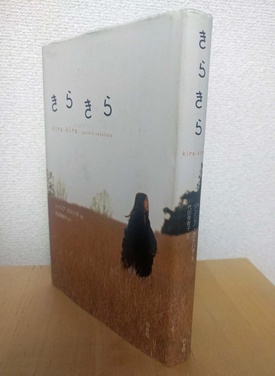The story takes place in the 1950s and 1960s in southern Georgia and central Arkansas, and explores how Japanese families lived there, what their children thought of themselves, and how they felt about the people and scenery around them.
Japanese American female author Cynthia Kadohata's novels "Seven Moons" and "Sparkle" depict a world that is rarely seen in the works of other Japanese American authors. The themes of the novels are also far removed from the suffering and identity of Japanese Americans related to war and internment camps.
These are stories from a region of Japanese American history that has rarely been told. Of course, these are works of fiction, but they are based on the author's own upbringing and experiences.
Kadohata's paternal parents were first-generation immigrants and sharecroppers in California, and his father worked on a celery farm as a young man and didn't attend much school, later joining the Army and serving in the MIS (Military Intelligence Service) during the war.
Her mother and maternal grandmother were born in Southern California, and her grandfather was an orphan, so his birthplace is unknown. The family moved to Hawaii in 1930, but later returned to the mainland and lived in Chicago. Cynthia Kadohata was born in Chicago in 1956 to these parents.
Later, her father moved with the family to Georgia to work as a sex-identifier for chicks, a job that Japanese and Japanese Americans were good at at the time, and then when she was two years old, they moved to Arkansas for the same job.
The sight of the whole family riding in a car and traveling in search of work was quintessentially American, and the sights and people he saw seemed fresh to the young Kadohata.
Both her first novel, The Floting World (Kodansha, 1989), and her subsequent novel Kira-Kra (Hakusuisha, 2004), aimed at younger readers, were based on her experiences as a child.
Seven Moons is about a young girl named Olivia Ann, who travels and lives with her parents, three younger brothers, and grandmother, and eventually leaves home to live in California. The film portrays her family and American society through her eyes.
The main character of "Twinkle Twinkle" is a girl named Lynn, who lives with her parents, older sister, and younger brother in a town in Georgia. Surrounded by her beloved older sister whom she respects, her adorable younger brother, her father who works hard, and her mother who supports him, Lynn feels, thinks, and grows. It is a sad but refreshing story.
The novel is set in an era when Japanese people faced not only occupational discrimination but also racial discrimination, particularly in the southern and central parts of the country where there were few Japanese people.
According to "A Hundred Years of Japanese Americans in the United States" (Shin Nichibei Shimbunsha, 1961), which compiled the footsteps of Japanese Americans across the United States, there were 137 Japanese Americans in Arkansas in 1960, "making it one of the states with the sparsest Japanese populations in the United States." In the same year, there were 885 Japanese Americans in Georgia, and, as appears in the novel, there were Japanese who worked in poultry farming and sexing chicks.
Regarding Gibson, Arkansas, the town where Seven Moons is set, the protagonist says, "There were no black people in the town of Gibson. There were only white people and a handful of Japanese people. We always kept quiet in front of white people."
"When we went into a restaurant, people stared at us. There were signs saying things like, 'Colored people please sit at the back.' White people sat at the front. We didn't know where to sit so we always got takeaway," says Lin from Twinkle.
There are only a handful of Japanese families in small towns in the South and Central United States. They have adopted many Japanese traditions and customs, including food culture. They also have Japanese values. However, they live and make a living in America, which has a uniquely American atmosphere, and that is their country.
In this special position, the protagonist, a young girl, although not a foreigner, views her surroundings and themselves from a certain distance.
In the afterword, Araki Konami, the translator of Seven Moons, quotes the following review of the work by author David Ravid:
"It depicts the experience of assimilation and non-assimilation into America with a highly distinctive and offbeat feel."
The term "unique offbeat sensibility" is a perfect description, as they look at their relationship with American society not head-on, but in a slightly off-beat way.
Kadohata's novels contain detailed descriptions of Japanese-American families traveling by car, similar to the way people traveled in covered wagons in the days of the Wild West. This is also based on her own experiences, and the portrayal of America and its people during her travels is a distinctive feature of her works.
"I love travelling around this amazing country and I love its beautiful landscapes and highways. Travelling and seeing things gives me the energy to write," she said.
(Titles omitted)
© 2017 Ryusuke Kawai







